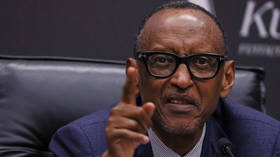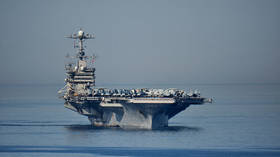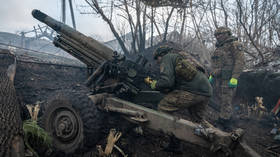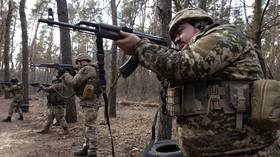Can Russia avoid post-Soviet hubris, American-style?
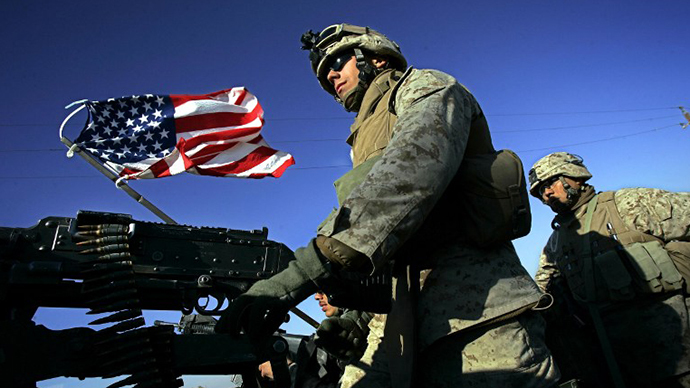
Judging by surface appearances, many would agree that Russians are from Venus and Americans are from Mars. Some would go further than that, no doubt, and say they hail from two distinct solar systems.
The former Cold War foes regularly exchange barbs over everything from the quality of chicken legs to the question of the US missile defense system in Eastern Europe. However, despite the occasional setbacks in the Russia-US reset – greatly aggravated of late by Edward Snowden turning up in a Moscow airport - the two nuclear superpowers share some marked similarities.
Both countries, for example, have acquired exceedingly deep pockets for pursuing their foreign policy objectives. Russia, following a 70-year stint with Marxist communism, now enjoys a financial windfall as it keeps the gears of the global economy greased with oil and gas. Although Russia’s abundance of God-given natural resources may eventually backfire, presently it is helping to underwrite a lot of the country’s ambitious initiatives.
The US, on the other hand, is the proprietor of the greasiest
money-making apparatus the world has ever seen, popularly known
as the Federal Reserve System. This gives America the ability to
pull money out of thin air, which in turn gives Uncle Sam the
ability to behave on the world stage like a drunken college
freshman on Spring Break. Thanks to this philosophy of easy
money, Washington now hosts some 900 military bases worldwide,
while launching a series of questionable military offensives,
notably the disastrous debacles in Iraq and Afghanistan.
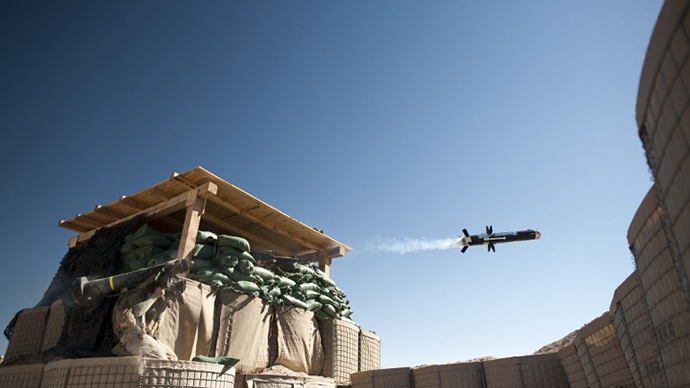
Meanwhile, the historic example of the Roman Empire, which ultimately collapsed from imperial overstretch, is not enough to persuade the United States to change its behavior. Every world power believes that history repeats itself, but only for others. America is not only the exceptional chosen nation; it is the great exception to the rules of global development. It may force its unilateral will upon an unsuspecting planet under the excuse (ruse?) of global terrorism; it may subject sovereign states and their citizens to the lawless court of drone warfare, as well as a massive surveillance system; it may exert its idea of freedom and democracy on foreign peoples, even as its own citizens are being steamrolled by corporate lobbyists in Congress.
Given the conquests and contradictions of American “hyperpower,” it may be the right time to ask if Russia too may fall prey to post-Soviet exceptionalism. Will it eventually pursue its national interests no matter what the cost to itself and others? After all, following eight years of Putin’s presidency, Russia now ranks as the 6th largest economy in the world in GDP. It has the hard cash to push forward with its global initiatives.
Naturally, Russia, as well as other countries, does not place much faith in the global initiatives of the United States. Despite all of the talk of a reset, Washington revealed its hand when it refused to cooperate with Russia on the US missile defense system, which is being bolted down just miles from the Russian border. At the same time, the US is trying to compel Russia to reduce its nuclear arsenal. Russians would be forgiven for believing that the reset was nothing more than a cunning ploy to get Russia to drop its guard (nuclear missiles) at the same time America is lifting the shield. So much for the reset.
Nevertheless, as an American watching his country print money out of thin air to finance a global empire, it seems that the best strategy for Russia is not to overspend itself in trying to keep pace with the global Goliath. Russia already attempted such a thing in the 1980s during its 10-year war against the mujahedeen in Afghanistan, the notorious ‘graveyard of empires, where historians may one day point to as the place that also led to the downfall of America.
Unless Russia believes it is really worthwhile to destroy its
currency in an effort to spread its military set pieces around
the world, the best strategy, it seems, is to play a game of
wait-and-see. America’s hyper-spending cannot last forever, and
when the house of cards finally collapses, as it must, then the
world may finally enjoy a moment of real peace.
Robert Bridge for RT
Robert Bridge is the author of the book,
Midnight in the American Empire, which
discusses the dangerous consequences of runaway corporate power
in the United States.
The statements, views and opinions expressed in this column are solely those of the author and do not necessarily represent those of RT.
The statements, views and opinions expressed in this column are solely those of the author and do not necessarily represent those of RT.






